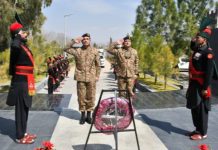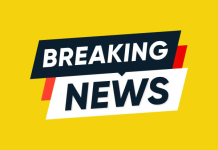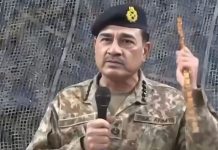DNA
UNITED NATIONS, Apr 23 (dna):UN Secretary-General Antonio Guterres has accepted the recommendations from an independent review of UN Palestinian refugee agency UNRWA’s ability to ensure neutrality and respond to allegations of breaches, his spokesperson said.
“He has agreed with Commissioner General Philippe Lazzarini that UNRWA, with the Secretary-General’s support, will establish an action plan to implement the recommendations,” UN Spokesperson Stephane Dujarric said in a statement on Monday.
“Moving forward, the Secretary-General appeals to all stakeholders to actively support UNRWA, as it is a lifeline for Palestine refugees in the region.”
The review, led by former French foreign minister Catherine Colonna, was released Monday.
The independent review group presented interim report findings and recommendations to the UN Secretary-General four weeks ago. These included evidence that UNRWA had “a significant number of mechanisms and procedures to ensure compliance with the humanitarian principle of neutrality”, although “critical areas…still need to be addressed,” Guterres’s office noted at the time.
The review panel – working with respected research organizations the Raoul Wallenberg Institute, the Chr. Michelsen Institute and the Danish Institute for Human Rights – announced that it would proceed with developing concrete and realistic recommendations to strengthen and improve the agency.
The report said that Israel has yet to provide supporting evidence of its claims that employees of UNRWA are members of terrorist organizations.
The Colonna report, which was commissioned by the UN in the wake of Israeli allegations, found that UNRWA regularly supplied Israel with lists of its employees for vetting, and that “the Israeli government has not informed UNRWA of any concerns relating to any UNRWA staff based on these staff lists since 2011”.
Israeli allegations of the involvement of UNRWA staff led major donors in January to cut their funding to the agency, the main channel of humanitarian support not only to Palestinians in Gaza but to Palestinian refugee communities across the region.
The funding was cut despite the dire needs of 2.3 million people in Gaza, most of whom have been forced from their homes by the Israeli offensive since October 7 and have been struggling to find water, food, shelter or medical care.
Most of the donor nations have resumed their funding in recent weeks. UK ministers had said they would wait for the Colonna report to make a decision on resuming funding. US financial support of UNRWA has been blocked by Congress for at least a year in the wake of the allegations.
“I don’t think the findings in the Colonna report are particularly surprising,” said Louis Charbonneau, the UN Director at Human Rights Watch. “Governments who haven’t should immediately resume full funding to UNRWA so it can deliver aid to desperate civilians. Many Palestinians are facing famine because of Israel’s use of starvation as a weapon of war.”
A separate investigation is being carried out into the October 7 attack by the UN’s Office of Internal Oversight Services. The UN said that inquiry has not yet been completed.
The Colonna review, an assessment of UNRWA neutrality which was drafted with the help of three Nordic research institutes and is due to be published later on Monday, makes clear that Israel has yet to substantiate any of its broader claims about the involvement of UNRWA staff in “terrorist organizations”.
It notes that in March “Israel made public claims that a significant number of UNRWA employees are members of terrorist organizations”.
“However, Israel has yet to provide supporting evidence of this,” the report says.
Alongside the Colonna report, a more detailed assessment was sent to the UN by the three Nordic research bodies – the Swedish-based Raoul Wallenberg Institute of Human Rights and Humanitarian Law, the Norwegian Chr Michelsen Institute, and the Danish Institute for Human Rights.
Their report says: “Israeli authorities have to date not provided any supporting evidence nor responded to letters from UNRWA in March, and again in April, requesting the names and supporting evidence that would enable UNRWA to open an investigation.”
The Colonna review makes clear that UNRWA is “indispensable” to Palestinians across the region.
“In the absence of a political solution between Israel and the Palestinians, UNRWA remains pivotal in providing lifesaving humanitarian aid and essential social services, particularly in health and education, to Palestinian refugees in Gaza, Jordan, Lebanon, Syria and the West Bank,” the review says.
“As such, UNRWA is irreplaceable and indispensable to Palestinians’ human and economic development. In addition, many view UNRWA as a humanitarian lifeline.”
The Colonna review suggests a number of ways that neutrality safeguards for UNRWA’s more than 32,000 staff could be improved, such as expanding the capacity of the internal oversight service, providing more in-person training and more support from donor countries. But it notes that they are already more rigorous than most other comparable institutions.
“The review revealed that UNRWA has established a significant number of mechanisms and procedures to ensure compliance with the humanitarian principles, with emphasis on the principle of neutrality and that it possesses a more developed approach to neutrality than other similar UN or NGO entities,” it says.
One of the frequent Israeli criticisms of UNRWA is that its schools across the region use Palestinian Authority (PA) textbooks with antisemitic content. The technical report provided by the Nordic institutions, however, found very limited evidence for those allegations.
“Three international assessments of PA textbooks in recent years have provided a nuanced picture,” the report says. “Two identified presence of bias and antagonistic content, but did not provide evidence of antisemitic content. The third assessment, by the [German-based] Georg Eckert Institute, studied 156 PA textbooks and identified two examples that it found to display antisemitic motifs but noted that one of them had already been removed, the other has been altered.”
The absence so far to underpin Israeli allegations has raised questions about the snap decision by donor countries to cut millions of dollars of funding to UNRWA as the Gaza death toll soared, the health system collapsed and famine began to loom.
Mark Seddon, the Director of the Centre for UN Studies at the University of Buckingham, said on the X social media platform: “On the basis of completely unverified claims by the Israelis, some governments immediately cut funding to UNRWA. Britain has still not renewed it. Ministers might like to explain what exactly they knew at the time & take responsibility for their actions.”
Monday’s development came amid reports of further Israeli bombardment across Gaza at the weekend and concerning levels of violence in the West Bank.
In Rafah, the southernmost city in the Gaza Strip, the UN sexual and reproductive health agency, UNFPA, reported on Monday that a baby had been saved by emergency caesarean section after its mother was critically injured in an airstrike and later died.
“Doctors in Gaza were able to save the life of the baby from the womb of the mother as she passed away from the head injury she’d sustained,” said Dominic Allen, UNFPA Representative for Palestine. The mother was 30 weeks pregnant when she died, along with her husband and the baby’s siblings, Mr Allen noted.
In Geneva, the UN Special Rapporteur on the right to health highlighted the huge toll on mental health that recent months and decades of violence have taken on the enclave’s besieged population and medical professionals.
“Imagine living under the constant anticipation of a bomb or a gun, or being shot while you’re trying to get food or water or play. That is in itself a form of violence,” said Dr Tlaleng Mofokeng. “To anticipate that your life could be extinguished in any moment and for children to grow up with that level of trauma is not normal. But for decades, that has been normalized for the people of Occupied Palestinian Territory.”
On a daily basis life continues to worsen for ordinary Gazans after nearly seven months of constant Israeli bombardment and a ground operation, launched in response to October 7 attacks in southern Israel that left some 1,200 dead and more than 250 taken hostage.
A child dies every 10 minutes in the enclave, UNRWA said at the weekend, in a fresh call to end the violence and allow desperately needed humanitarian aid into the enclave.
To date, Gazan health authorities report that more than 34,000 Palestinians have been killed and some 77,000 wounded in Israeli attacks on Gaza since October 7.
Underscoring the looming health dangers from warmer spring conditions, UNRWA expressed renewed concerns over poor waste management and disease. In a post on X, formerly Twitter, Scott Anderson, Senior Deputy Director of UNRWA Affairs in Gaza, warned that substandard water and sanitation were far below what the population needed to stay healthy.

















